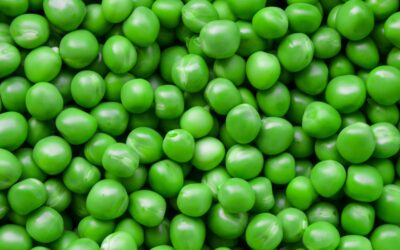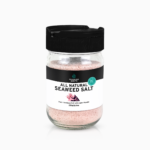When I was at the Australasian Society of Lifestyle Medicine conference in Brisbane, I decided to head to the forum of dietitians where nutritionist Rosemary Stanton was the main speaker. Rosemary is a good speaker and I liked what she had to say. She blamed the Heart Foundation for taking eggs off the menu, said that she eats butter and that she lives on an organic property growing her own foods.
But I found her defence of the Australian dietary guidelines confusing. The dietary guidelines have nothing much to do with real food. They also prefer margarine over butter, refined vegetable oils over lard and tallow, low-fat over normal-fat foods, a plethora of carbohydrates, calorie counting and also look at the parts of food (protein, carbohydrates and fats) as opposed to looking at the whole food.
Nutrients and Chemical Exposure in Food
It was the Q And A session after Rosemary’s talk where it got interesting. The first question was whether there is any difference between the nutritional value of conventionally grown food versus organically grown foods. The researcher who had explored this topic said that there was no difference in the nutrient values of either foods. I didn’t really have a problem with this as I know that organic doesn’t necessarily mean nutrient rich. Organic merely means that different chemicals or no chemicals are used on the foods being grown.
Nutrient dense foods come about as a result of nutrient dense soil. If the farmer is not paying attention to the nutrients and ecology of the soil, then the plants may be lacking in nutrients. Plants are like humans – if they do not have a good nutrient base and ecology then they will become sick and more pests and disease will attack the plant, which means more and more chemicals will be needed to manage the crops. Humans without proper nutrition also get sick, needing more medications to improve the condition of the patient. (Well at least that is the modern paradigm to health.)
It was the second question, about the chemical exposure of conventionally grown food versus organically grown foods, that resulted in a miffed look on my face. It was determined that nutrients and chemical exposure in food were two entirely different topics.
I’m sorry but I disagree entirely.
The health of the plant, ecology and nutrient value and no chemical exposure are ALL important for the health of the plant as well as the health of the animals and humans that eat them.
Organic Does Not Always Mean Healthy
Just because something is organic or certified organic does not mean that it is healthy. Fresh food that is grown in nutrient rich soils without exposure to chemicals will be the healthiest for the consumer.
Recently I was at a party and one of the mums had bought organic corn chips – I flipped over to see the ingredients and this is what I saw:
Organic corn, organic palm Olein Oil, cheese flavour 5%, whey powder, salt, lactose, vegetable powders, sugar, yeast extract, natural flavour, colour, food acid, cheese flavour, spices, spice extract.
This food is certified by an Australian organic governing body, who has since told me that 5% of a certified organic food can be without organic status.
First of all, many of the ingredients in the above food are filled with more chemicals than their name implies; yeast extract is a glutamate like MSG, natural flavour has 48 chemicals mixed in a laboratory and colour will have stabilisers including polysorbate 80 and propylene glycol.
So, does ‘organic’ mean nutrient rich or has it become just another marketing ploy? I really believe that we must become informed and conscious consumers, and, sadly, just because it says it is organic does not mean that it is nutrient rich or free from chemicals.
Changing Habits has a certified organic online Shop. Even though we have the organic seal, we are diligent about only purchasing products that are also nutrient dense. We speak with our farmers – we want to know what they are doing on the land in order to not only be chemical free, but also nutrient dense.
With health in all areas of the population failing, now, more than ever, is a time to question where your food is coming from, how it is grown, and whether the soils are rich in nutrients and ecology. Also, read your ingredients if you are buying packaged food, and don’t be fooled by the organic label…be an informed purchaser.
Changing Habits, my farm and my local farmers market is where I get all my fresh local foods. Everything in my fridge and pantry is a one-ingredient food, so that I have all the resources to make 1000’s of delicious recipes to feed and nourish my family and to be a part of the healing of this nation.







Very interested as I have always been guided by Rosemary Stanton but also felt that her advice did not delve deeply enough.
Fair concerns Cyndi,locally grown ,low food miles food grown in a regenerative manner with a focus on soil mineralisation and highly diverse soil biology is miles ahead of food produced in an organic factory farming system.